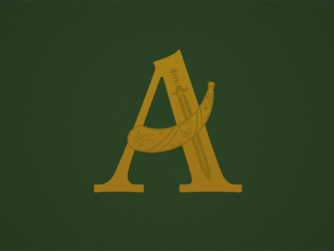On a cold grey winter evening, Frodo sets out on the Quest of Mount Doom with eight companions. Boromir blows his horn to make sure everyone for miles around knows about their “secret” departure, and Gimli debates the value of oaths with Elrond before the Fellowship of the Ring says goodbye to the Last Homely House. We get knee-deep in Dwarvish word-nerdery, investigate Tolkien’s (unintentional?) symbolism in choosing Christmas Day as the start of the quest, and pass ourselves off as a couple of hoopy froods who really know where our towels are.
Recommended Reading:
Tolkien, J. R. R. The Fellowship of the Ring: Being the First Part of The Lord of the Rings (Mariner Books, paperback) pp. 272-76, “The Ring Goes South”
Tolkien, J. R. R. (Christopher Tolkien, ed.) The Silmarillion (Mariner Books, paperback)
Tolkien, J. R. R. The Monsters and the Critics and Other Essays (HarperCollins, paperback)
Shippey, Tom. J.R.R. Tolkien: Author of the Century (Mariner Books, paperback)



I think there was a section in the Silmarillion where it states that the Quendi found the language of the dwarves hard to learn (unlovely). The dwarves on the other hand could easily learn the language of the elves and were unwilling to teach the elves the dwarven language. This tells me that the dwarves might have been the better linguists. The dwarves were after all learning Quenya and Sindarin as well as the Manish languages. Did the dwarves take advantage of elven prejudice in order to keep their language and culture secret?
That’s an excellent point, Chuck. Knowing the relationship between language and sub-creation, and Aulë’s involvement with both (and the Noldor being natural linguists because of that) it stands to reason that Dwarves may be better linguists than one may realize. They may well have allowed the Elves to go on believing their own prejudices in order to keep themselves secret and separate.
Hey guys,
Recently discovered this podcast and I absolutely love it. I have a question for you – I know you’ve had similar questions before but not exactly like it, unless I’ve missed it:
Ignoring the fates of Rohan and Gondor (let’s pretend they’re going to be just fine), if Gandalf had not fallen in Moria and if Boromir had not betrayed them, as well as without Gollum’s help, do you think it would have been possible for all nine of the fellowship to make it into Mordor and to the cracks of doom? Would nine have been too many? What do you think the best route would have been?
I know there’s a lot of hypotheticals to consider and they’d probably have to change their plans often, but could they have got there in one piece or would they have got themselves stuck somewhere and had to separate after all?
Thank you for taking the time to read this.
All the best,
David,
London
Thanks for listening, David! Glad you found us. So we’re assuming that Boromir and Aragorn had not split off and gone to Minas Tirith as they were planning to do all along, right? That’s an interesting question. I tend to think nine would have been too many to attempt the path of Cirith Ungol, and obviously still too few to enter through the Morannon. Even if they got in, nine would have been too many to hide the way Frodo and Sam did: generally staying out of sight, and even posing as Orcs marching north. It’s hard to believe they could have pulled that off with a group of nine including an Elf, a Dwarf, and a Dúnadan. Ultimately, I think some kind of separation of the group to draw Sauron’s attention elsewhere would still be needed. But I’d love to hear other thoughts on it!
In the chapter “The Breaking of the Fellowship” when the companions are camping under the shadow of Tol Brandir, Aragorn suggests that only 4 of the Fellowship undertake the journey to Mordor. He says the 4 should be Frodo, …”Sam, who could not bear it otherwise; and Gimli; and myself.” This group might have succeeded in destroying the Ring but without Aragorn’s fighting skills and leadership in both Rohan and Gondor it’s possible that both would have fallen so it would have been a Pyrrhic victory at best.
IIRC, Moria should be considerably older than Holin. Holin was only established in the Second Age, but Moria was established by Durin the First the first of the fathers of the dwarves who awoke sometime in the Years of the Trees, not long after the elves at Cuivienen.
It’s almost certain that the dwarves named the mountains and later transmitted the names to elves and men. I think it speaks to the friendship between these elves and dwarves that the elves kept the same names. The guys who named dwarves ‘the stunted people,’ probably would have called them like ‘Farty-head’ and ‘Bloody Nuisance.’
Although I know it would be too much to relate Frodo with Jesus, once I read that actually aspects of Christ can be seen in three characters: Frodo, as the Messiah; Aragorn, as the King; and Gandalf, as the Prophet. These three aspects are commonly known and studied in christianity and you can see some parallels. I need to read it all to have a case, tho, but I’ll tell you this: Aragorn DOES descend to the dead and rescue/brings them back to their final rest.
So that’s at least one thing!